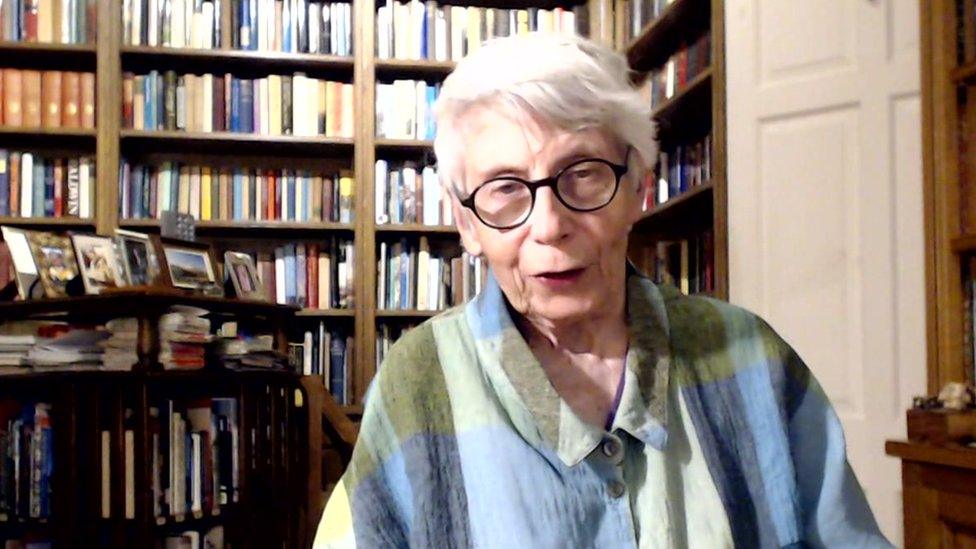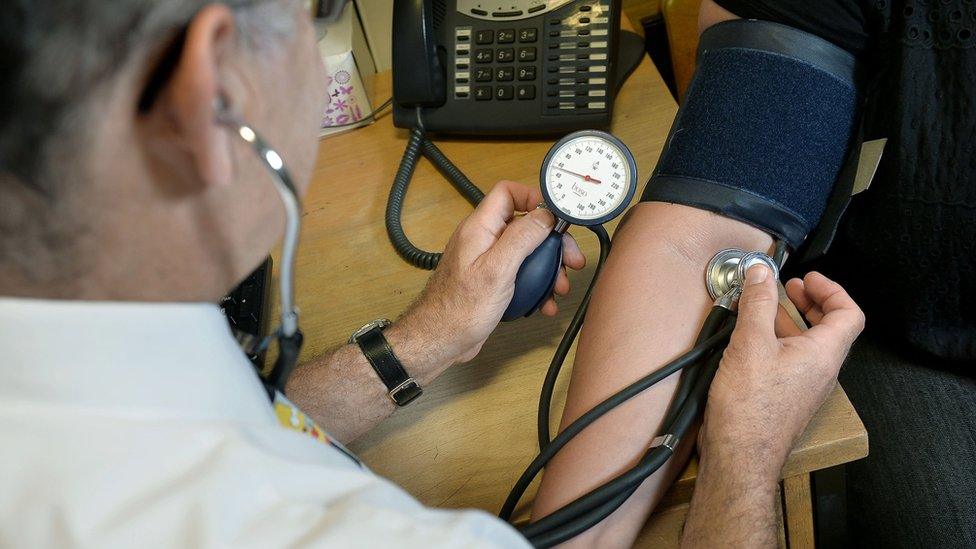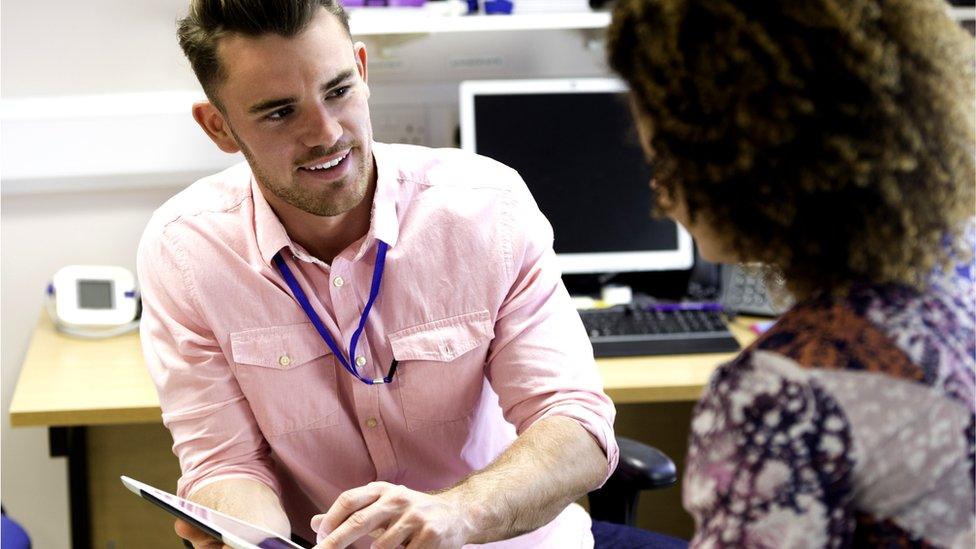Shared GP appointments trialled - and patients 'like' them
- Published

Mary Henfrey has praised the shared appointments she has attended in Northumberland
Shared appointments at doctors' surgeries are being trialled across England - and patients like them, a group of GPs has said.
Up to 15 patients with the same condition have shared GP appointments as part of tests at some surgeries, the Royal College of GPs said.
It said patients benefited from support from other people, while GPs said it stopped them repeating advice.
But Prof Helen Stokes-Lampard said the approach would not work for everyone.
The idea first came from the US around 10 years ago, but small scale trials have been increased in recent years across England, Prof Stokes-Lampard added.
The appointments have been used for people with conditions ranging from raised blood pressure and rheumatoid arthritis, to chronic back pain and asthma.
Mary Henfrey regularly attends shared appointments near her home in Northumberland and thinks the sessions are useful.
"The good part about it is people ask questions that you might not have thought of asking yourself," she told the BBC.
"It is nice to see other people, talk to them and get their experiences as well. And everybody who is there seems pleased to be there."
The sessions last for up to two hours and involve everyone signing a confidentiality agreement.
Mrs Henfrey added: "I know the first time I ever went to one of the group sessions... everyone was reminded of confidentiality.
"But once you have been to a number of these group sessions, you know everybody there and the confidentiality thing just doesn't arise.
"Everyone is interested in their own thing."

Dr Frazer Birrell says the sessions offer better care for patients with chronic conditions
Dr Frazer Birrell, who runs groups in the North East, said there were more than 300 shared sessions taking place across England.
"It won't suit everyone, but what we are trying to do is offer people choices.
"The big trouble is we don't have enough nurses, we don't have enough doctors and waiting times are worse than we want.
"So this is one possible solution where if we see people together, we can offer them better care... and we can see the people with chronic conditions more regularly."
Patient choice
Prof Stokes-Lampard said the idea of group education has been around for many years, including antenatal classes and group cardiac rehab sessions.
"Those are just about information giving. This is something different. This is a two-way interactive process."
She said the sessions would never replace private one-on-one consultations, adding: "This isn't going to be something that everyone is going to be offered and it would never be appropriate for huge numbers of people.
"Sometimes being unwell can be a very lonely place, and learning from colleagues, friends, and other patients can be a very powerful way of realising you are not alone."
She said the number of shared appointments is likely to continue to grow over the next decade.
The Patients Association said group consultations could be "reassuring" as people could see others who shared the same concerns and challenges caused by their condition.
But the group's chief executive, Rachel Power, added: "Patients must be given the choice as to whether to participate, or to continue with more traditional GP services."

- Published7 April 2017

- Published28 June 2018
